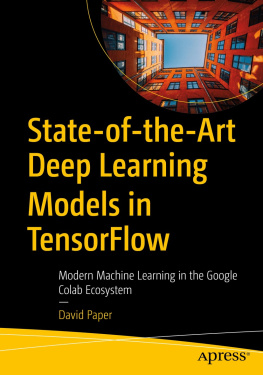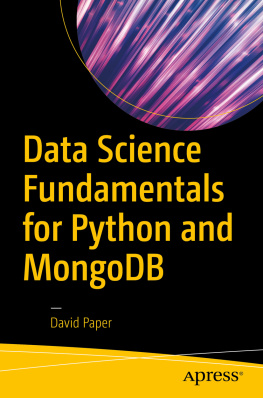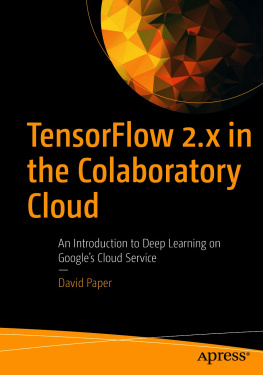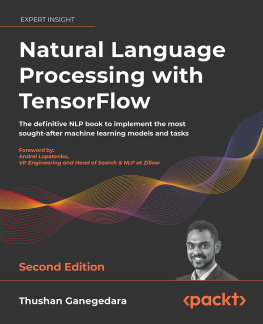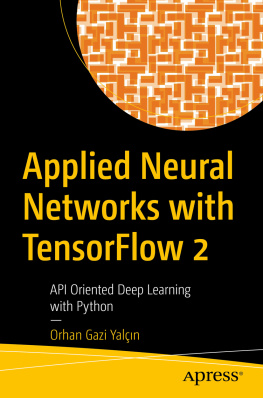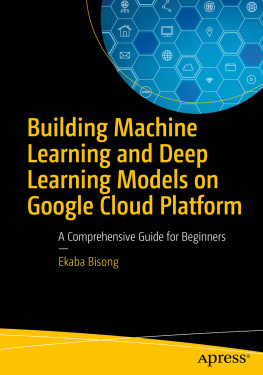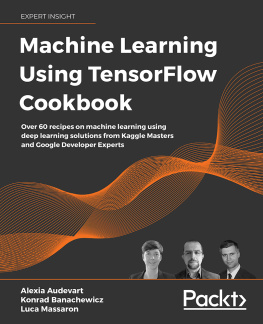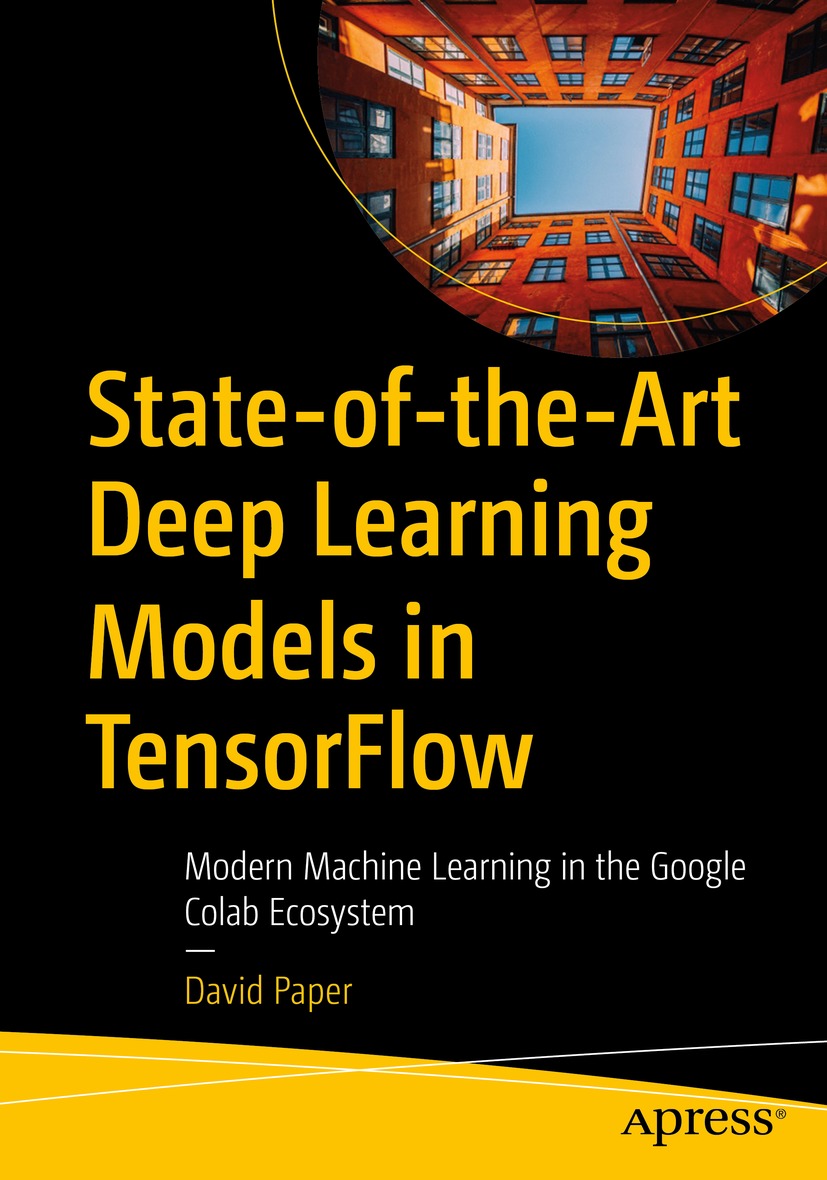David Paper - State-of-the-Art Deep Learning Models in TensorFlow: Modern Machine Learning in the Google Colab Ecosystem
Here you can read online David Paper - State-of-the-Art Deep Learning Models in TensorFlow: Modern Machine Learning in the Google Colab Ecosystem full text of the book (entire story) in english for free. Download pdf and epub, get meaning, cover and reviews about this ebook. year: 2021, publisher: Apress, genre: Computer / Science. Description of the work, (preface) as well as reviews are available. Best literature library LitArk.com created for fans of good reading and offers a wide selection of genres:
Romance novel
Science fiction
Adventure
Detective
Science
History
Home and family
Prose
Art
Politics
Computer
Non-fiction
Religion
Business
Children
Humor
Choose a favorite category and find really read worthwhile books. Enjoy immersion in the world of imagination, feel the emotions of the characters or learn something new for yourself, make an fascinating discovery.
- Book:State-of-the-Art Deep Learning Models in TensorFlow: Modern Machine Learning in the Google Colab Ecosystem
- Author:
- Publisher:Apress
- Genre:
- Year:2021
- Rating:4 / 5
- Favourites:Add to favourites
- Your mark:
State-of-the-Art Deep Learning Models in TensorFlow: Modern Machine Learning in the Google Colab Ecosystem: summary, description and annotation
We offer to read an annotation, description, summary or preface (depends on what the author of the book "State-of-the-Art Deep Learning Models in TensorFlow: Modern Machine Learning in the Google Colab Ecosystem" wrote himself). If you haven't found the necessary information about the book — write in the comments, we will try to find it.
Use TensorFlow 2.x in the Google Colab ecosystem to create state-of-the-art deep learning models guided by hands-on examples. The Colab ecosystem provides a free cloud service with easy access to on-demand GPU (and TPU) hardware acceleration for fast execution of the models you learn to build. This book teaches you state-of-the-art deep learning models in an applied manner with the only requirement being an Internet connection. The Colab ecosystem provides everything else that you need, including Python, TensorFlow 2.x, GPU and TPU support, and Jupyter Notebooks.
The book begins with an example-driven approach to building input pipelines that feed all machine learning models. You will learn how to provision a workspace on the Colab ecosystem to enable construction of effective input pipelines in a step-by-step manner. From there, you will progress into data augmentation techniques and TensorFlow datasets to gain a deeper understanding of how to work with complex datasets. You will find coverage of Tensor Processing Units (TPUs) and transfer learning followed by state-of-the-art deep learning models, including autoencoders, generative adversarial networks, fast style transfer, object detection, and reinforcement learning.
Author Dr. Paper provides all the applied math, programming, and concepts you need to master the content. Examples range from relatively simple to very complex when necessary. Examples are carefully explained, concise, accurate, and complete. Care is taken to walk you through each topic through clear examples written in Python that you can try out and experiment with in the Google Colab ecosystem in the comfort of your own home or office.
- Take advantage of the built-in support of the Google Colab ecosystem
- Work with TensorFlow data sets
- Create input pipelines to feed state-of-the-art deep learning models
- Create pipelined state-of-the-art deep learning models with clean and reliable Python code
- Leverage pre-trained deep learning models to solve complex machine learning tasks
- Create a simple environment to teach an intelligent agent to make automated decisions
Who This Book Is For
Readers who want to learn the highly popular TensorFlow deep learning platform, those who wish to master the basics of state-of-the-art deep learning models, and those looking to build competency with a modern cloud service tool such as Google Colab
David Paper: author's other books
Who wrote State-of-the-Art Deep Learning Models in TensorFlow: Modern Machine Learning in the Google Colab Ecosystem? Find out the surname, the name of the author of the book and a list of all author's works by series.

